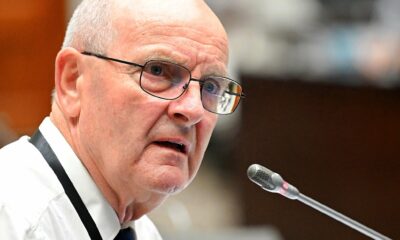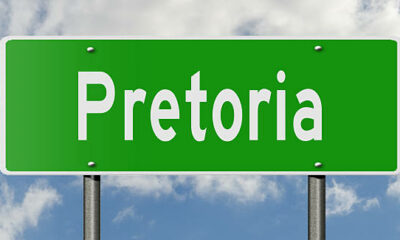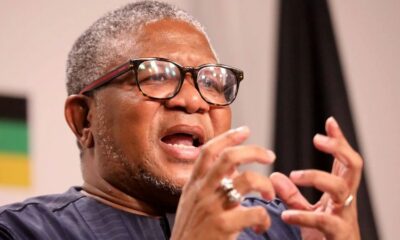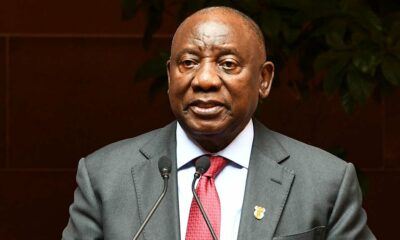News
“They Don’t Know Who They’re Messing With”: Gayton McKenzie Weighs In on Open Chats Race Row

A call for education, not incarceration, as backlash brews on both sides
South Africa’s Minister of Sports, Arts and Culture, Gayton McKenzie, has found himself both defending and denouncing a group of young podcasters whose racially charged comments about Coloured people ignited national fury. His solution? Race sensitivity training, not criminal prosecution.
Speaking on The Konvo Show, McKenzie said he didn’t want to see the Open Chats podcasters jailed for their remarks, which many in the Coloured community found offensive and dehumanising.
“They should go to race sensitivity classes,” McKenzie stated. “I will not allow those kids to go to jail. We have restorative justice in our country. They should have no criminal records.”
But the matter hasn’t ended there. The minister’s own position has been complicated by a separate scandal, his repeated use of the K-word online. While his push for restorative justice has been welcomed by some, others have accused him of hypocrisy and even criminal complicity.
“I’m handling this,” McKenzie admits to halting threats
McKenzie claimed that after the backlash against the Open Chats hosts exploded, their lives were threatened. According to him, he personally stepped in to stop things from escalating.
“This is deeper than what transpired between us and them,” he said. “These kids don’t know that there are people who take things out of hand… I was the one that called those people, and I said, ‘No, I’m handling this.’ But people don’t see that.”
The implication was that McKenzie used personal influence to de-escalate a dangerous situation. However, critics believe the admission raises serious legal red flags.
EFF Deputy President Godrich Gardee was quick to respond, saying McKenzie’s comments were an admission of being in contact with individuals planning criminal acts.
“He is in contact with criminals who want to harm the kids, and he did not inform the police,” said Gardee. “He is complicit in the crime that will be committed against the kids.”
A deeper debate on Coloured identity and opportunity
McKenzie, himself a Coloured politician and former mayor, went further, using the moment to spotlight what he sees as broader systemic inequality faced by Coloured South Africans.
“The law says opportunities must go to black people in particular… Coloured people don’t get funding from NSFAS, only a small minority,” he said.
It’s a sentiment that echoes long-standing frustrations in Coloured communities, who often feel left out of national empowerment initiatives.
Public reactions: divided but vocal
On social media, reactions to McKenzie’s stance have been mixed. Some have praised him for championing restorative justice over retribution, especially for young people who may not have fully grasped the weight of their words.
Others say he’s attempting to deflect from his own problematic behaviour by playing peacemaker in someone else’s scandal. His history of using racial slurs on his own platforms has not been forgotten, with many questioning whether he is the right person to be making calls for sensitivity.
The bigger picture
At its core, this controversy has exposed several layers of tension in South Africa’s ongoing struggle with race, identity, and justice. It’s not just about one podcast episode; it’s about how we talk about race, who gets to speak, and how the state chooses to respond when the lines of offence and danger blur.
Whether the Open Chats hosts will be enrolled in any kind of training remains to be seen. But what’s certain is that this story is far from over.
Also read: Parliament Clears Gayton McKenzie Over Old K-Word Tweets, Public Debate Rages
Follow Joburg ETC on Facebook, Twitter, TikTok and Instagram
For more News in Johannesburg, visit joburgetc.com
Source: IOL
Featured Image: Pretoria News



























